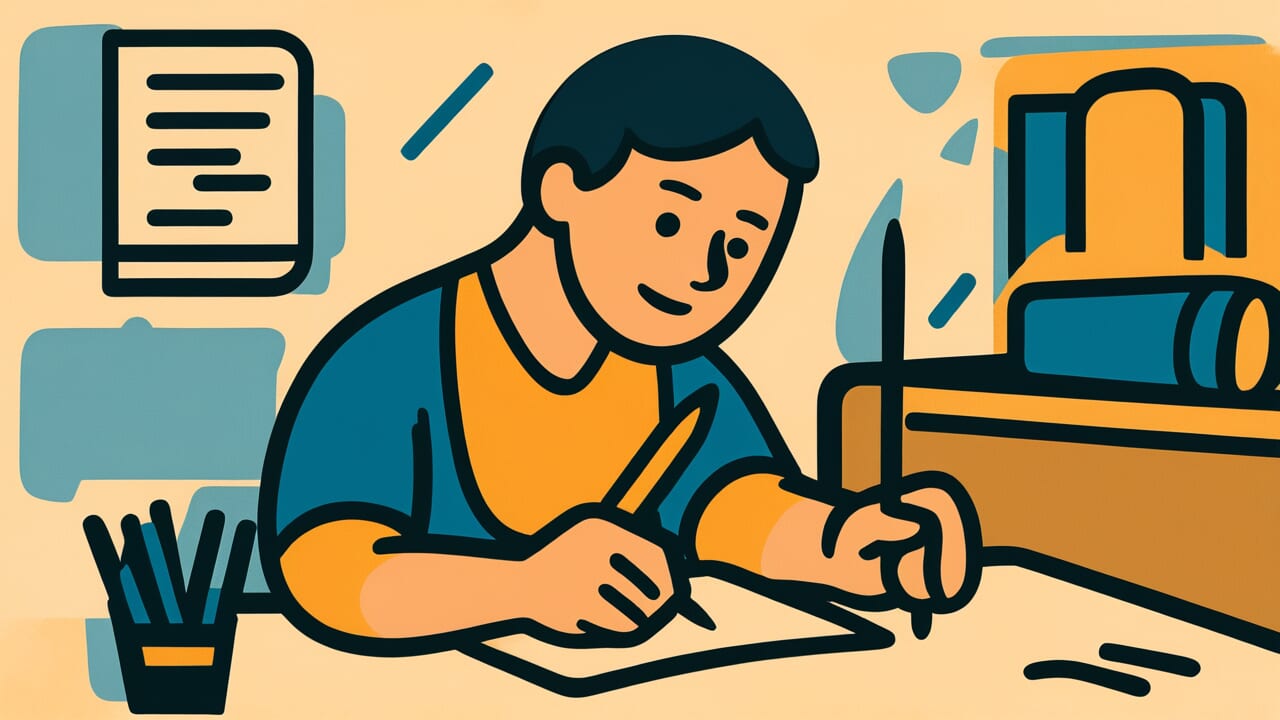How to Read “Writing comes before learning”
Gaku no mae ni sho kitaru
Meaning of “Writing comes before learning”
“Writing comes before learning” literally means bringing books before studying. It describes the mistake of getting the order of learning wrong.
This proverb warns against trying advanced topics before mastering basics. It also cautions against relying only on books instead of learning directly from a teacher.
People use this saying when someone skips steps and rushes ahead. It also applies when someone tackles difficult challenges without proper preparation.
Why does this expression matter? Because learning has a proper order. Ignoring that order prevents true understanding.
Even today, jumping to advanced problems without learning basics doesn’t work well. Cramming theory without practical experience is also ineffective.
This proverb captures an essential truth about learning. It connects to the spirit of “haste makes waste.”
Origin and Etymology
No clear historical records document the origin of this proverb. However, the structure of the phrase reveals interesting background.
Let’s look at the two key words: “learning” and “writing.” In ancient China and Japan, studying and reading books were closely connected.
The important point is the order: “learning” should come first, “writing” second. Originally, learning meant receiving direct instruction from a teacher. Understanding deepened through dialogue. Books were meant to come later.
The expression “writing comes” is also interesting. The passive phrasing suggests books arriving when you’re not ready for them.
It’s like receiving an advanced problem book before learning the basics.
In Edo period temple schools, students first watched their teacher’s demonstrations. They received oral instruction, then studied from books. This sequence was considered essential.
This educational philosophy may underlie the proverb. The importance of following proper order was recognized in all learning environments.
Usage Examples
- He’s trying advanced AI development without learning basic programming. It’s truly “writing comes before learning.”
- If you’re a beginner buying only specialized books, “writing comes before learning” means you won’t actually learn anything.
Universal Wisdom
“Writing comes before learning” reveals a universal human desire: wanting shortcuts. It also shows the structure of failure that this desire creates.
Why do people want to skip steps? Because the steady process of learning basics is boring. Results aren’t immediately visible.
Meanwhile, books as physical objects have magical power. Just holding them makes you feel like you’ve learned something. Simply having specialized books on your shelf can create the illusion of becoming smarter.
But our ancestors saw through this psychological trap. They knew true learning requires following proper steps and building gradually. The process itself is the essence.
Books are certainly treasures of knowledge. But without a foundation to understand them, they’re just arrangements of letters.
This proverb has endured because human impatience never changes. The desire to “get results quickly” remains constant across eras.
And the truth that this impatience hinders learning never fades. The importance of following proper order is universal wisdom that applies to every aspect of life.
When AI Hears This
The phenomenon of becoming more humble as you learn more actually comes from structural features of the brain’s self-evaluation system.
Research on the Dunning-Kruger effect shows interesting results. People who scored in the bottom 12 percent on tests rated themselves in the top 38 percent.
Meanwhile, top performers assessed their ranking almost accurately. This difference isn’t about knowledge amount. It’s about metacognitive ability—the ability to objectively view your own thinking.
What’s interesting is why beginners become overconfident. When you know just a little about something, you can’t see the whole field.
For example, someone who just learned chess rules feels confident because they can now play. But they don’t yet know about the vast systems of opening theory and tactics.
Experts, however, discover how much they don’t know as they learn more. This happens because as your knowledge network expands, contact points with unknown areas increase exponentially.
Brain science also plays a role. As expertise deepens, the prefrontal cortex activates. This allows calm evaluation of your own abilities.
So becoming humble before learning isn’t moral growth. It’s the result of normal cognitive function development in the brain.
Lessons for Today
This proverb teaches you the value of steady progress without rushing. In our information-flooded modern world, accessing knowledge has become incredibly easy.
Specialized books and academic papers are just one click away. But this also creates an environment where “writing comes before learning” happens easily.
What matters is honestly examining what stage you’re at now. If your foundation is weak, don’t be embarrassed to return to basics.
It may seem like a detour, but it’s the most reliable path. Starting with YouTube beginner videos is fine. Learning directly from experienced people is also a worthy first step.
This proverb also warns against all “superficial things,” not just books. Collecting only certifications, titles, or tools without real ability doesn’t work.
Follow the proper order. Move forward one step at a time. This steady approach is what builds genuine strength.
May your learning be built on a solid foundation.



Comments